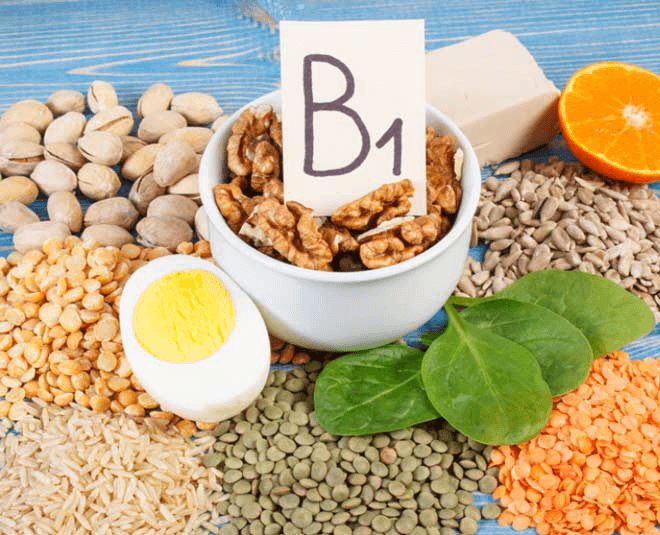- +033 2572 7171
- info@dhanvantary.com

4.5 Rating | 4500 Review

4.5 Rating | 4500 Review
Vitamin B1, also known as thiamine, is referred to as "thio-vitamine." It is a member of the B-complex vitamins, characterized by its water solubility, and is an essential nutrient for the human body. The designation of vitamin B1 arises from its status as the first B vitamin to be identified. This vitamin is crucial for the proper utilization of carbohydrates by our bodies.

Vitamin B1 functions as a coenzyme, activating enzymes and proteins that are vital for numerous biochemical processes occurring within the body. This represents the primary advantage of this vitamin.
The most abundant source of vitamin B1 is dried brewer’s yeast. Other sources include dried milk, nuts, oats, eggs, legumes, peas, onions, carrots, cabbage, spinach, potatoes, oranges, beef, liver, and pork. Additionally, many foods such as rice, bread, cereals, pasta, and flour are often fortified with thiamine. Sunflower seeds and flax seeds are also excellent sources of this vitamin. The prevalence of processed foods is a significant factor contributing to vitamin B1 deficiency. A deficiency can result in difficulties with carbohydrate digestion, breathing issues, potential heart damage, and a decline in mental alertness. Conditions associated with vitamin B1 deficiency include beriberi, Alzheimer’s disease, alcoholism, and congestive heart failure.
Males aged 14 years and older are advised to intake 1.2 mg of Vitamin B1 daily, while females aged 14 to 18 years should aim for a daily intake of 1 mg. For females over the age of 18, the recommended daily allowance increases to 1.1 mg. Pregnant and breastfeeding women may require a slightly higher dosage of Vitamin B1.
Although Vitamin B1 deficiency is uncommon, it can occur in individuals whose diets are predominantly composed of sugar or alcohol. Older adults are particularly susceptible to this deficiency. Generally, Vitamin B1 is considered non-toxic; however, excessive intake may lead to gastrointestinal discomfort. It is advisable to limit the consumption of certain foods and beverages, such as alcohol, coffee, tea, and raw fish, as these can degrade Vitamin B1. This vitamin is frequently included in B-complex supplements for individuals who are deficient in it.
